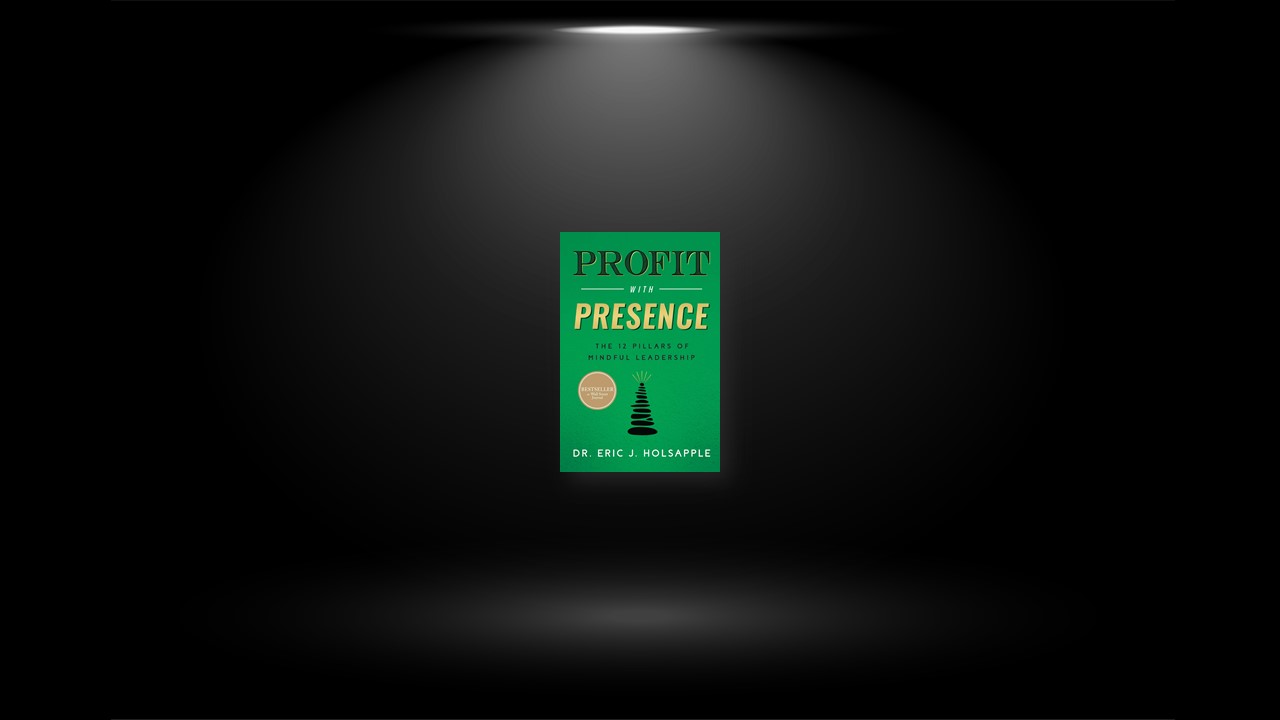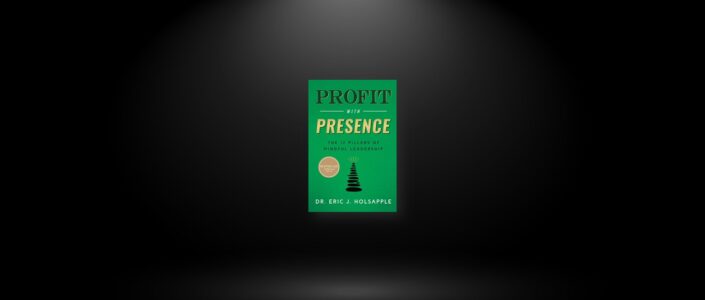Pillar 1 Be Present and Practice Mindfulness
Mindfulness is the ability to be fully present and aware of where we are and what we are doing in a nonjudgmental state. Jon Kabat-Zinn says, “Mindfulness is awareness, cultivated by paying attention in a sustained and particular way: on purpose, in the present moment, and non-judgmentally.”
It’s also beneficial to think of what mindfulness is not: multitasking, distraction, less than full awareness of what you are doing, and judgment. Mindfulness is a natural state and possibly most easily accessed in nature. In the modern, fast-paced, online world, it can be difficult to access. Fortunately, there are practices that foster mindfulness. The most effective and portable practice is possibly meditation.
Pillar 2 Identify Your Purpose in Life
Eckhart Tolle in A New Earth describes life as having an inner purpose and an outer purpose. Inner purpose is an experience, a state of being, and is primary. Discovering who you truly are is awakening to your inner purpose. You are Presence itself.
Bringing your inner purpose, Presence, to what you are doing in the moment is the goal. Outer purpose is a state of doing and is secondary to Presence. Outer purpose is what you do and the roles you play, such as CEO, athlete, or parent.
Inner purpose establishes who you really are. Presence is why you do things or your purpose and how you do things in a qualitative sense, and inner purpose relates to “being.” Outer purpose establishes what you do or your roles, and where you do things, and relates to “doing.” Some may question why it’s so important to establish inner purpose, and it’s simply because your best self shows up with Presence, and that’s an inside job that happens when our inner and outer purposes are aligned.
Pillar 3 Create Clarity, Vision, Intention, Commitment, and Habits
Without clarity, we can be confused about what our purpose and vision is and what has been instilled by culture, and so on. Vision allows you to create a new reality and start to put it into action. Intention is focused awareness desiring a specific outcome. Commitment is what allows you to take action and begin to form habits. Once established, habits help you keep your commitments. Commitments and habits form a positive feedback loop.
Pillar 4 Success Is a Mindset of Be-Do-Have
A be-do-have model means that you separate your way of being from results, meaning happiness, success, contentment, and so on, are inside jobs that in fact make you more successful. So rather than waiting for happiness to occur after some result, we become happy now and that same happiness will increase our likelihood of success.
You have everything you need to be happy right here, right now. What’s the downside to feeling successful, happy, secure, and content now? Do you believe you’ll just stop generating or being productive at work if you are happy, satisfied, and content?
You’ll generate more and make a more significant difference along the way by being present, generating a powerful vision for the future, and focusing on the process rather than the results.
Pillar 5 Show Up, Take Action, and Detach from Results
Take the actions you’re committed to taking and leave the results up to a power greater than yourself or your karma. You control your actions because they are your duty, but you don’t control the results.
Attachment means we bond to something, and when we bond to results, we bond to some future event. Detaching from results allows us to be present in our activities. It’s not removing our care about results. We still want good results; it’s just not our purpose or primary focus. We focus on what we’re doing in the moment and check in on the results from time to time, making appropriate modifications to our actions.
Pillar 6 Be Responsible, Practice Nonjudgment and Compassion
When we judge, we label and put something in a neat category. We stop listening or evaluating because we already know. Judging closes the mind and the conversation. It’s incredibly efficient and incredibly limiting. When we judge, we’re not present or inclusive. We’re setting ourselves apart from the person, place, or thing we focus on. The same happens when we judge and splinter ourselves, rather than accepting ourselves, despite our imperfections, and becoming whole.
It’s not that we don’t want to improve; of course we do. But judging doesn’t lead to improvement. It just closes the door to consideration. If we can be aware of a problem without judging, it allows space for improvement without dismissing the present moment as unacceptable. Steve Hagen, in Meditation: Now or Never, says, “But if we just come back, look honestly at what we’re doing, and let the judging go, if we learn to come back and come back and come back. Eventually, our judgmental mind will lose its strength.”
Pillar 7 Foster Relationships with Your Word and Listening
You might say, “But they are not equal. I’m the CEO” or “I’m the parent, and this is my child.” You can, I hope, see through this trap, but these interpretations are from ego or a subpersonality and the world of form. In the world of essence, your real identity and the other person’s real identity are equal. Even if you are more conscious than someone else, your consciousness is not superior. If you have any inkling that you are better or worse than someone else or deserve better or worse treatment, you should immediately recognize you are not present but stuck in a thought or judgment.
Everyone is equal in essence, which is what really matters. All else comes and goes. Remember the phrase “This too shall pass.” Forget seeing people as a means to an end and start seeing them as individuals who have the same concerns, desires, and fears that all people have. It’s not something you can fake; people know when you believe you’re superior and when you believe they’re your equal. Be real. Be present.
Pillar 8 Be in Flow, Create Affluence and Influence
There are two crucial aspects of Flow. One refers to an internal state of being, and the other to the frequency and methods of external connectedness, especially with significant people, such as customers or other leaders who could affect your success. Both types of flow are highly relevant and important, and I use a capital F for Flow when representing both of these concepts simultaneously.
Mihaly Csikszentmihalyi’s book Flow: The Psychology of Optimal Experience describes the internal state and how “People who learn to control their inner experience will be able to determine the quality of their lives, which is as close as you can get to being happy.”
Csikszentmihalyi calls the state “optimal experience,” “enjoyment,” or simply “flow.” As noted previously, flow also means being in the zone, living in the gap, and Presence.
Pillar 9 Be Grateful, Give Generously, and Serve
Many people seem to plan to wait to give or serve until they make it. This is wrong thinking. It’s counterintuitive, but due to mindset, karma, and the precession effect, being grateful, giving, and serving are the surest path to success. Additionally, if you haven’t given and served along the way, it’s unlikely you will automatically have that epiphany later, when you feel you have “made it.” You may well donate to worthwhile causes, which is to be commended.
Pillar 10 Acceptance Means to Stop Resisting and Complaining
Acceptance is simply being present and noticing what is—what already is—for what you are is acceptance itself amid your present experience. Acceptance is the path to stop resisting and complaining. Acceptance means to see reality, see things as they actually are, not as we wish them to be. Presence springs from acceptance of what is, and from Presence comes love, compassion, creativity, and mindful action.
A big misconception is that if you accept yourself as you are, you’ll lose your motivation to change and grow. However, it’s from an awareness that acceptance allows that real change is possible. Acceptance means bringing mindful attention to our limitations, capacities, and external realities without allowing them to determine our happiness. Acceptance doesn’t ignore self-indulgence or make us passive. Instead, it gives us the option of mindful action in the face of persistent desires and problems, coupled with surrender and acceptance of what is and what we cannot change. Renowned psychologist Carl Rogers said, “The curious paradox is that when I accept myself just as I am, then I can change.”
Pillar 11 Take Everything Impersonally and Let Life Flow through You
We’re most reactive when someone says something negative about us and, inside, we believe it’s true. When we know it’s not true, we tend to be more forgiving. If we believe it’s true, our fight-or-flight response is triggered and we become defensive.
In truth, we should thank the person for making us aware of a troubling behavior that’s true. But that’s seldom our typical response. Generally, we respond by taking it personally, reacting, and assuming they’re attacking us.
In actuality, the comments are about themselves and their own world that you are possibly affecting in a way that motivated the comment or action. Don Migel Ruiz says, “Even when a situation seems so personal . . . it has nothing to do with you. What they say, what they do, and the opinions they give are according to the agreements they have in their own minds.”
Pillar 12 Beginner’s Mind Means to Know Nothing Absolutely and Be Curious
No matter how smart you are, you don’t know everything, and a lot of what you think you know is based on assumptions, judgments, bias, and erroneous information. The mind is wired to say, “I know,” culture promotes knowing, and fortunately or unfortunately, the world continues to be a mystery. As the Tao Te Ching teaches: “When they think they know the answers, people are hard to guide. When they know that they don’t know, people can find their own way.”
Knowing closes the mind and limits awareness. Unknowing leaves us open to explore possibilities and expands awareness. Notably, we tend to think we know what’s best for someone else, but how could we? We’ve discussed the new science of consciousness in which we each project our own unique universe, and in that universe, sometimes we create “I know” when we don’t. How much do you think you know in all the universe, in all knowledge, in all wisdom? What do you acknowledge you don’t know? What don’t you know that you don’t know? There is literally an entire universe of possibilities.


